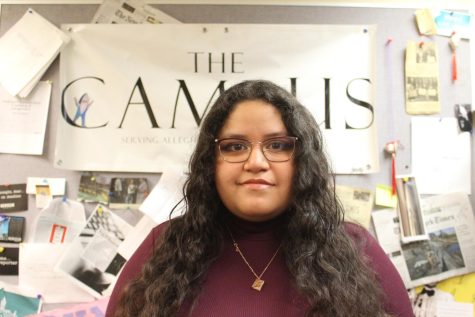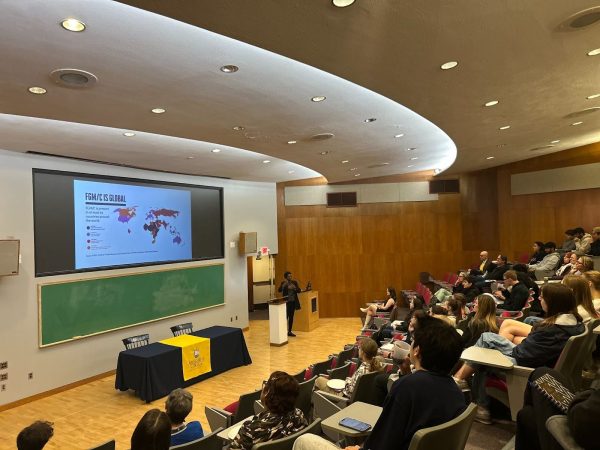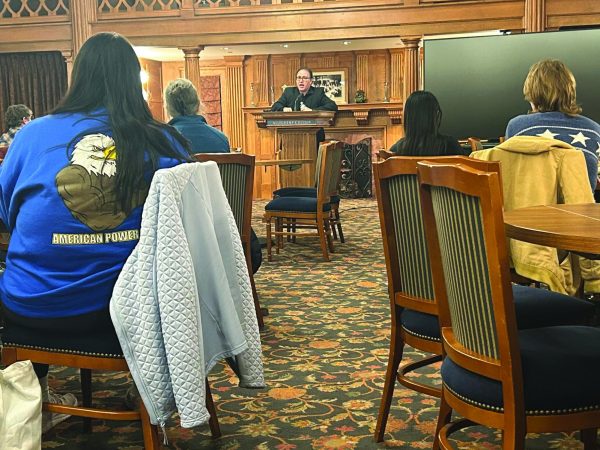Panelists reveal the challenges of a PWI
At predominantly white institutions, students of color face challenges and have had to adapt to circumstances in order to succeed. This Black History Month, the IDEAS Center has invited panelists of color to give advice and share their experiences navigating a PWI with students.
At 6 p.m. on Wednesday, Feb. 23 the IDEAS Center held a panel over Zoom. Students were encouraged to submit their questions for the panelists prior to the meeting.
Director of the IDEAS Center Darnell Tucker, explained the purpose of the panel as a way for students to hear from those who have gone through similar experience at other PWI and at Allegheny.
“The desired outcome is for students to be able to look at someone who’s gone through it already and ask them what they would do differently so that our students can learn from their own experiences and make their own experiences better,” Tucker said. “I want Allegheny students to be better equipped to know what resources are available for them.”
Assistant Director for Retention and Graduate Outreach at Case Western Reserve University Jennée Kelly explained some of the ways minority students could be prepared to attend a PWI.
“It is a lot of community building,” Kelly said. “What I am intentional about is bringing students into our office and if I see you wandering around campus I am going to say hello to you.”
In agreement with Kelly, law student at Ohio State University Joey Oteng expressed the importance of students grounding themselves in their identity and in their communities to be able to have stable support systems that can help navigate the challenges at a PWI.
“You are capable in so many different ways. You have been through a lot and you are going to go through a lot,” Oteng said. “Yet, you’re still more capable of accomplishing what you need to because of these past experiences.”
Allegheny President of the Association for the Advancement of Black Culture Jordan Pierce, ’22, shared where he has been able to connect with people who have shared experiences.
“I remember the first meeting I went to for ABC was about coming up with a protest because a student of color had gotten called the N-word at a white party,” Pierce said. “You have to go and find your place. We don’t have a lot of them here but in those places we are in the masses for sure.”
Mental health has been a stigmatized subject for a long time even though many college students face mental health challenges throughout their careers. The panelists respond to the stigmas associated with prioritizing mental health as Black individuals.
“There is so much stigma for men to talk about their emotions but it is hard especially for Black men,” Oteng said. “I was so afraid to go to my first therapy session but I realized it was easy when I finally went. The hardest part was me setting up the meeting.”
Most schools provide resources for students to have the opportunity to reach out and ask for help related to their careers and overall navigation of college life. Panelists listed career services, multicultural centers and diversity centers as ways students of color can succeed in their PWI and take advantage of the opportunities available.
“Our diversity center like IDEAS was a really big source this semester,” Pierce said. “It’s kinda like where you can just go and talk to somebody and it is a space where you could see all the beautiful people of color.”
Kelly shared her experience with not feeling integrated into the campus community at Miami University. Her experience was mixed with some aspects being really positive while other instances did not make her feel like she was a part of the community.
“I made some awesome connections and I’m still friends with people there but I think diversity was more numbers based and who is gonna look good on the brochures,” Kelly said. “It is not an experience where I felt integrated by the institution as a whole but I felt like offices in particular did care and incorporated me.”
Closing out, the panelists were invited to share what they would do differently if they could go back to undergraduate school.
“I wish I realized that I don’t have to mimic other people to be successful,” Kelly said. “I think that will save you so much anxiety of trying to be perfect because then you are denying yourself of the privilege of being you.”

Evelyn Zavala is a senior from San Francisco. She is majoring in Business and minoring in Journalism in the Public Interest. This is her fourth year on...







